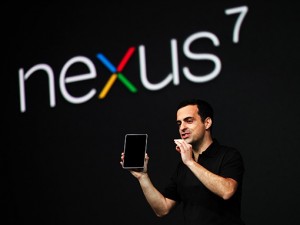 Google recently released its own Android tablet, the seven-inch Nexus 7, its latest Jelly Bean operating system and a home media device which will be marketed under Google’s own brand.”
Google recently released its own Android tablet, the seven-inch Nexus 7, its latest Jelly Bean operating system and a home media device which will be marketed under Google’s own brand.”
However, research firm Ovum, claims that Google has not solved the biggest challenge for Android and that it still has significant challenges across its device portfolio which it is far from solving.
Ovum chief telecoms analyst, Jan Dawson, said though the Nexus 7 borrows heavily from the Amazon Kindle Fire in that it puts content front and centre, it lacks compelling apps and content optimised for the larger screen size.
“At seven inches, this problem is less acute, but it doesn’t solve the problem and Google said nothing about how it will address this problem,” he said.
In addition, Dawson said the price point of the tablet is not sustainable in the long-term as it likely benefits from some subsidy.
“But the tablet is an important step forward for Google’s Android tablet strategy, in that it breaks the dichotomy that exists presently between low-priced, low performance devices and over-priced, high spec devices,” he said.
Dawson said that the Nexus Q home media device posed some challenges as well.
According to him, it is very similar to the Apple TV launched in 2007 — $299 for a device that streams content from the Cloud and attaches to a TV and other home media devices.
But with the current Apple TV selling for $99 and doing far more, including mirroring smartphone and tablet screens, there is little hope for Google’s latest venture into the home entertainment space at three times the price, he said.
“Google’s decision to manufacturer the device in the US may turn out to be a self-defeating PR move, given that it’s the most logical reason for the inflated $299 price point,” Dawson claimed.
However, Dawson also said that the latest version of Android includes some good improvements, including a competitor to Apple’s Siri and a new service called Google Now which uses artificial intelligence to serve up information relevant to the user’s context proactively.
“Google’s announcement that it would begin seeding a platform developer kit to hardware vendors several months before the platform is launched to users, is Google’s first serious attempt to reduce both fragmentation and the long delays in getting the latest version of Android onto devices and into users’ pockets,” he added.





